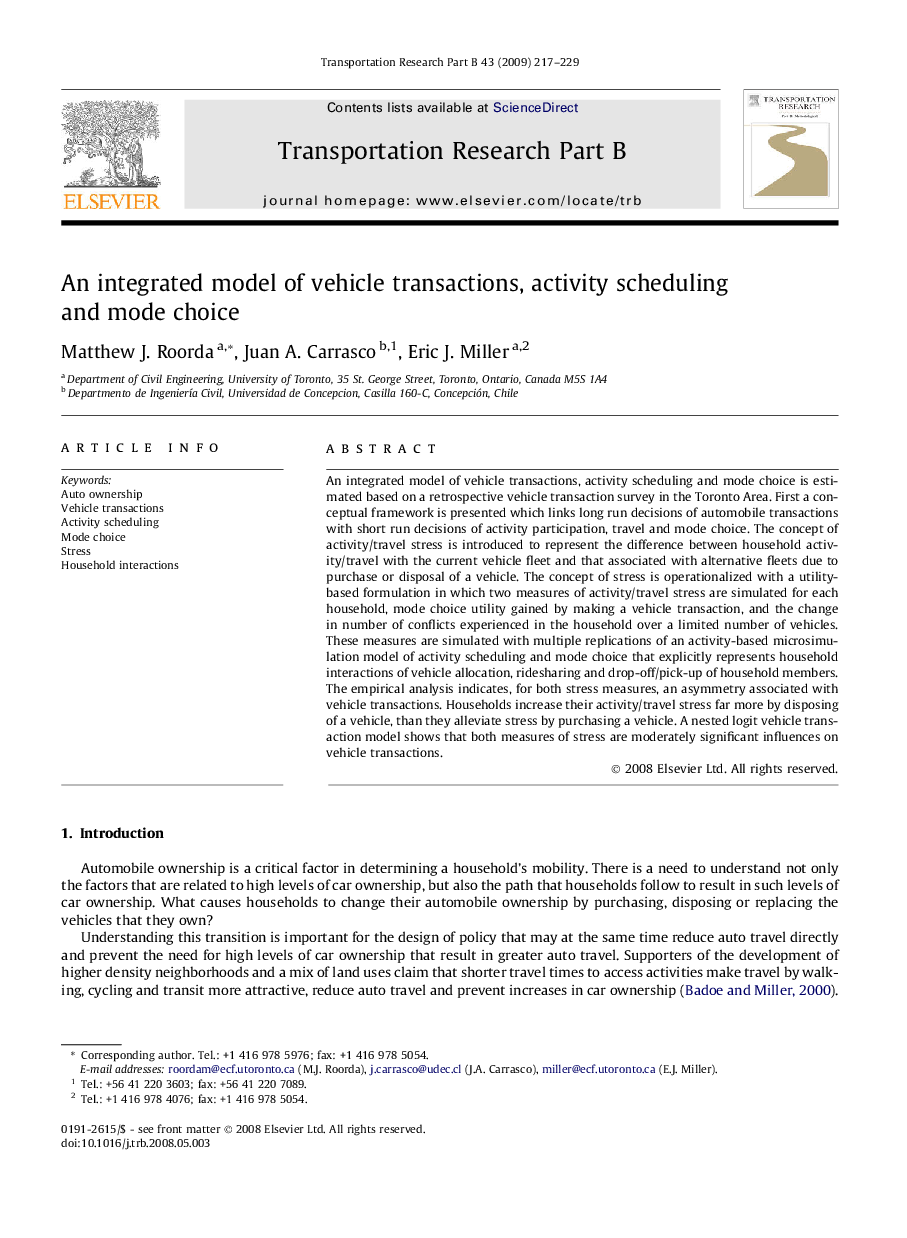| Article ID | Journal | Published Year | Pages | File Type |
|---|---|---|---|---|
| 1132707 | Transportation Research Part B: Methodological | 2009 | 13 Pages |
An integrated model of vehicle transactions, activity scheduling and mode choice is estimated based on a retrospective vehicle transaction survey in the Toronto Area. First a conceptual framework is presented which links long run decisions of automobile transactions with short run decisions of activity participation, travel and mode choice. The concept of activity/travel stress is introduced to represent the difference between household activity/travel with the current vehicle fleet and that associated with alternative fleets due to purchase or disposal of a vehicle. The concept of stress is operationalized with a utility-based formulation in which two measures of activity/travel stress are simulated for each household, mode choice utility gained by making a vehicle transaction, and the change in number of conflicts experienced in the household over a limited number of vehicles. These measures are simulated with multiple replications of an activity-based microsimulation model of activity scheduling and mode choice that explicitly represents household interactions of vehicle allocation, ridesharing and drop-off/pick-up of household members. The empirical analysis indicates, for both stress measures, an asymmetry associated with vehicle transactions. Households increase their activity/travel stress far more by disposing of a vehicle, than they alleviate stress by purchasing a vehicle. A nested logit vehicle transaction model shows that both measures of stress are moderately significant influences on vehicle transactions.
